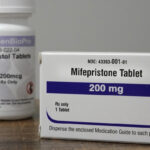Title: “The Growing Role of Misoprostol in Abortion Access: A Look at its Impact on Women’s Health”
Introduction:
An informative article in The New York Times sheds light on the increasing utilization of misoprostol, a medication, for safe and accessible abortion. As restrictions on abortion access persist in various regions, misoprostol has emerged as a valuable tool in empowering women to exercise their reproductive rights. This development prompts important discussions about the impact of misoprostol on women’s health and the evolving landscape of abortion care.
Understanding Misoprostol:
Misoprostol is a medication originally developed to prevent and treat stomach ulcers. However, its effectiveness in inducing uterine contractions has made it an integral component of medication abortion. When used in combination with another medication called mifepristone, misoprostol can effectively and safely terminate pregnancies.
Safe and Accessible Abortion Care:
The article highlights misoprostol’s role in expanding access to safe abortion care, particularly in regions where legal restrictions and limited healthcare resources hinder women’s ability to access traditional clinic-based abortions. Misoprostol’s oral administration and stability at room temperature make it a versatile option that can be used in a variety of settings, including at home, under appropriate medical guidance.
Empowering Women’s Autonomy:
Misoprostol provides women with more control over their reproductive choices. By offering a non-invasive and discreet option for terminating pregnancies, misoprostol enables women to exercise their autonomy and make decisions that align with their personal circumstances and beliefs. This option is particularly valuable for women facing barriers to clinic-based care due to geographical, legal, financial, or social constraints.
Safety and Efficacy:
Misoprostol has been extensively studied and shown to be safe and effective for inducing abortion when used as directed. The World Health Organization (WHO) includes misoprostol in its list of essential medications for reproductive health. However, it is crucial for individuals to have access to accurate information, medical guidance, and appropriate follow-up care to ensure the procedure’s safety and effectiveness.
Supporting Access to Information and Resources:
Ensuring that individuals have access to comprehensive information, counseling, and medical supervision is essential when using misoprostol for abortion. The article emphasizes the importance of expanding access to accurate, evidence-based information about the correct dosage, administration, and potential side effects of misoprostol. Additionally, access to supportive healthcare providers, helplines, and clinics plays a crucial role in ensuring that individuals have the necessary resources for safe and informed decision-making.
Continued Advocacy and Policy Considerations:
The growing utilization of misoprostol highlights the need for ongoing advocacy efforts to protect and expand access to safe abortion care. It also emphasizes the importance of comprehensive reproductive healthcare policies that prioritize women’s autonomy, support evidence-based practices, and ensure access to accurate information, counseling, and healthcare services.
Conclusion:
The increasing utilization of misoprostol for safe abortion care represents a significant development in reproductive healthcare. By expanding access to non-invasive and discreet options, misoprostol empowers women to exercise their reproductive rights and make choices aligned with their individual circumstances. However, ensuring accurate information, medical guidance, and supportive healthcare services are crucial for the safe and effective use of misoprostol. Continued advocacy and policy efforts are necessary to protect and expand access to comprehensive reproductive healthcare, supporting women’s autonomy and well-being.



